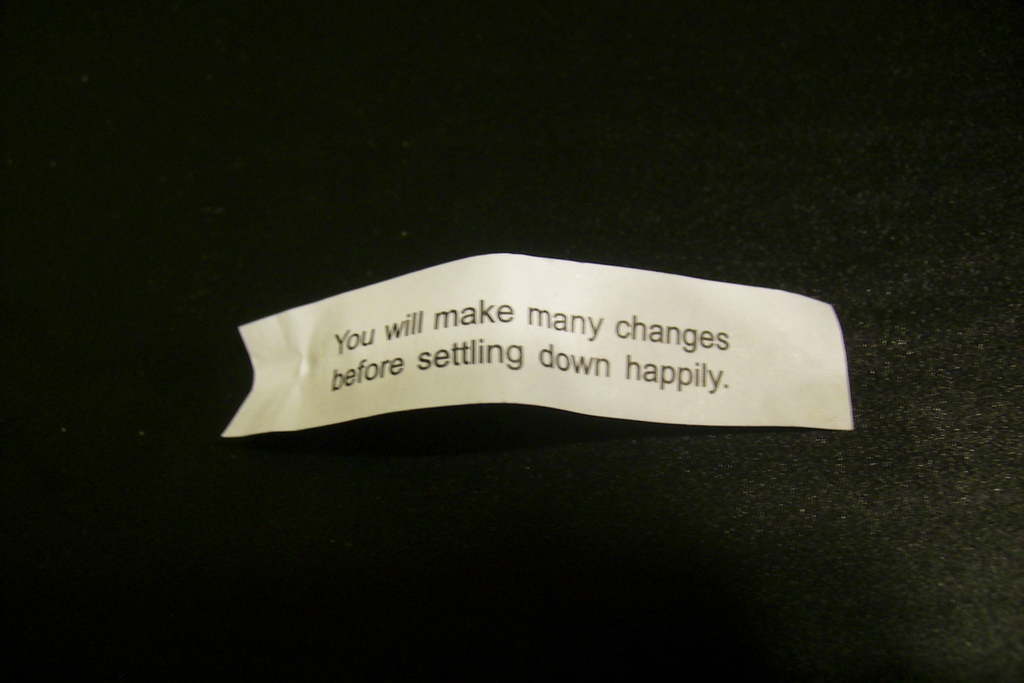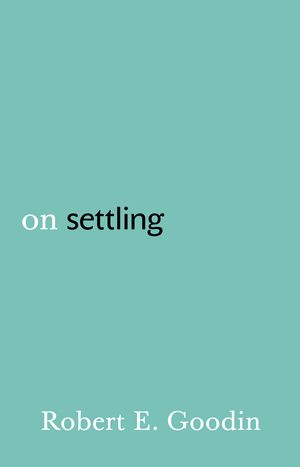
In Squaring Off, Zócalo invites authors into the public square to answer five questions about the essence of their books. For this round, we pose questions to Australia National University political philosopher Robert E. Goodin, author of On Settling.
Goodin takes a simple topic and, in little more than 100 pages, offers a case for settling (settling on, settling for, settling in, you name it) as a necessary complement to striving.


-
Your book struck me as an antidote to all those management tomes and self-help books that urge us to strive all the time, at everything we do. Is that a fair interpretation?
You’re certainly right that those sorts of management tomes, sending people off in headless-chicken fashion in every direction at once, do indeed rankle with me. Far better to focus. As I continually told a former boss who was much enamored of such managerial strategies: “I can do anything, I just can’t do everything …” -
You portray settling as a necessary yin to striving’s yang. But while striving has brought us dramatic improvements in healthcare and safety, it’s also what’s heating the planet. Does our species need to spend more time settling than striving, overall?
My book is about “settling,” but not as an end in itself. Rather, I view it as an aid to striving more effectively. The reason you need to settle in some dimensions is to achieve what you are striving for in other dimensions. Of course we have to be careful how we go about our striving (as your climate change remark reminds us), and it’s important to make sure that what you are striving for is truly worthwhile. There are plenty of books out there that will help you on that front. What I wanted to stress is that settling is necessary to overall success. -
As you mention, even cool artists like Elvis Costello disdain the notion of settling, equating it with decay. But, as you note, settling is critical to progress. We settle one sphere to focus on another. Does settling need a new advertising campaign?
People already know perfectly well how to settle. We settle upon a partner, and then again upon divorce. We settle into a new house, a new city, a new job. We settled down physically, without which we’d have no agriculture. We all know how to do it (even if some of us do it more successfully than others). It’s not a new concept that needs to be introduced into the market. Rather, the pro-settling marketing campaign needs merely to persuade people, “No apologies required!” In a culture of striving, people are easily made to feel they’re doing something wrong when settling—they’re letting someone (largely themselves) down. Clearly not so, once you come to see settling as a necessary adjunct to successful striving. -
Do some cultures need to heed your advice more than others?
Well, I’ve just alluded to “a culture of striving,” but I am not sure it has much to do with the civilizational discourses attached to the world’s great religions. Those seem sufficiently capacious to host a great many different cultural forms; there is probably more variation within than across civilizations of that sort. But culture as a set of practices, presuppositions, and precepts of a more modest sort evolve not only within organizations but also among even the most loosely related communities of people who take cues from one another. And that is where something like a “culture of striving” might be found. In those cultural packages, striving often goes together with various other attributes, like competitiveness and ambition. But striving in its place is no bad thing; and “suitably ambitious” is indeed a term of praise. My aim is not to displace such cultures altogether, but merely to remind those operating within them that striving in all directions at once is a recipe for disaster, and settling in some dimensions in order better to strive in others is a counsel of prudence even from that culture’s own point of view. -
Are there some folks who should be settling more than striving at the moment?
One aspect of settling we’ve not spoken much about so far is “settling up”—coming to terms, making amends, as a way of going forward. (My book was written in part with Australia’s relation to its original inhabitants in mind.) While there are many people who should settle up, none are more conspicuous in today’s world than the financiers whose reckless disregard of their fiduciary duties brought down the global economy in 2008. Far too many of them seem to be back at it again. They need not only to settle down but also to settle up, and make proper amends for what they have done.



